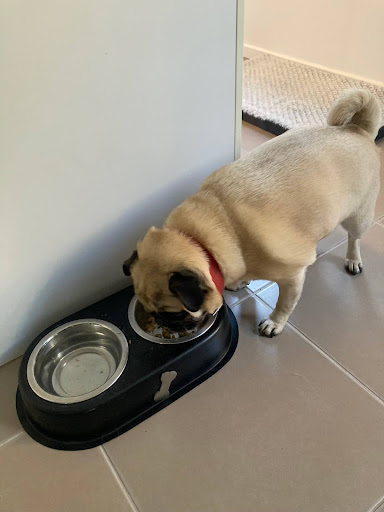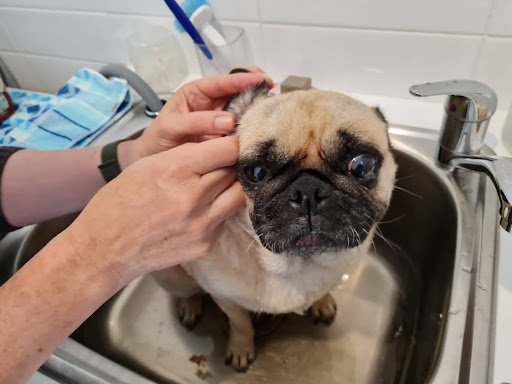Toy Dog Health and Wellbeing
Toy Dog Wellbeing: Caring for Their Health, Happiness, and Longevity
Toy dogs may be small in size, but they have big needs when it comes to their health and wellbeing. As devoted companions, they depend on us to provide the care, attention, and love they deserve to live happy, healthy lives. And while toy dogs may not need as much space or exercise as their larger cousins, they do have unique requirements that ensure they thrive both physically and emotionally.
Let’s explore the essential aspects of toy dog wellbeing—from diet and exercise to grooming and emotional health—so you can give your little friend the best life possible.

The Unique Health Needs of Toy Dogs
Toy dogs have bodies that function a little differently from those of larger breeds. Their small frames and faster metabolisms mean they burn energy quickly and can be more sensitive to changes in diet, routine, or health. Health needs can vary across different toy dog breeds, making individual care especially important.
Although toy dogs are often perceived as fragile, many are surprisingly resilient when cared for properly. Their wellbeing depends less on their size and more on consistent routines, appropriate nutrition, regular veterinary care, and gentle handling.
Diet and Nutrition for Toy Dogs
Just like humans, toy dogs need a balanced, nutritious diet to stay healthy. However, their smaller size means they require fewer calories, so portion control is crucial. A toy dog’s diet should be high in quality proteins and healthy fats, while avoiding fillers or unnecessary carbohydrates that can lead to weight gain.
Toy dogs are prone to obesity, especially if they’re overfed or given too many treats. Because their bodies are so small, even a little extra weight can put strain on their joints and increase their risk of health issues. Make sure you’re feeding your dog a diet specifically formulated for toy breeds, as these recipes take their size and energy needs into account.
It’s also important to monitor the quality of the food you give them. High-quality dog food with whole ingredients is always the best choice. And while it may be tempting to share table scraps with your furry friend, many human foods aren’t safe for dogs—especially small ones—so it’s best to stick to their regular diet.

Exercise and Mental Stimulation
While toy dogs don’t require the same amount of exercise as larger breeds, they still need regular physical activity to maintain a healthy weight and stay mentally stimulated. Short walks, play and gentle training sessions all support physical and mental wellbeing. A game of fetch in the living room or a brisk walk around the block can give them the exercise they need.
But physical exercise is only half the equation—mental stimulation is just as important. Toy dogs are intelligent and need activities that challenge their minds. Puzzle toys, training sessions, and interactive games are all great ways to keep your dog’s brain engaged. Without enough mental stimulation, toy dogs can become bored, which might lead to behavioral issues like excessive barking or chewing.
It’s important to find the right balance of physical and mental activities to keep your toy dog happy and healthy. Regular playtime and attention not only benefit their health but also strengthen the bond between you and your dog.
Common Health Considerations in Toy Dogs
Like all dogs, toy breeds can be prone to certain health conditions. Dental issues are particularly common due to smaller mouths and crowded teeth, making regular dental care an important part of overall wellbeing.
Some toy dogs may also experience joint conditions such as patellar luxation, where the kneecap moves out of place. Maintaining a healthy weight and providing appropriate exercise can help reduce strain on joints.
Very small dogs may also be susceptible to low blood sugar, especially if meals are skipped or delayed. Feeding regular, appropriately sized meals helps support stable energy levels.
Being aware of potential issues allows owners to seek advice early and support their dog’s long-term health.

The Importance of Regular Veterinary Care
Routine veterinary visits play a vital role in maintaining toy dog health. Preventive care such as vaccinations, parasite protection, and regular check-ups help identify concerns early.
Veterinarians can also offer guidance on diet, dental care, exercise, and age-related changes. Because toy dogs may have breed-specific health considerations, ongoing professional advice helps tailor care to each individual dog.
Grooming and Hygiene
Grooming is another critical aspect of toy dog wellbeing. While some breeds, like short-haired Chihuahuas, are relatively low-maintenance, others—like the long-haired Shih Tzu or Maltese—require regular grooming to keep their coats in good condition.
Grooming needs vary between toy dog breeds, but regular care supports both comfort and health. Brushing helps prevent matting and skin irritation, particularly for long-coated breeds.
Nail trimming, ear checks, and dental hygiene are equally important. Because toy dogs may spend more time indoors, their nails often require regular trimming to avoid discomfort or changes in posture. Using gentle, dog-specific grooming products helps protect sensitive skin and coats.
Mental and Emotional Wellbeing
Toy dogs are often deeply bonded to their people. This close attachment is part of what makes them such affectionate companions, but it also means emotional wellbeing deserves attention.
Providing a calm, predictable environment, safe resting spaces, and enrichment activities can help toy dogs feel secure. Quality time — whether through play, walks, or quiet companionship — plays a key role in emotional health.
Some toy dogs may experience anxiety when left alone for long periods, making gradual routines and positive reinforcement especially helpful.
Toy Dog Wellbeing Through the Senior Years
As toy dogs age, their health needs may change. Senior toy dogs may require more frequent vet visits, adjustments to their diet, and gentler forms of exercise. They may also experience joint stiffness, changes in vision or hearing, and dental issues.
Caring for a senior toy dog involves adapting to their new needs and ensuring they remain comfortable and happy in their golden years. Comfort becomes increasingly important, from supportive bedding to routines that accommodate changes in mobility or sensory awareness. With attentive care, many toy dogs remain active and content well into their later years

A Lifelong Commitment to Wellbeing
Caring for a toy dog is a long-term commitment that evolves over time. Thoughtful nutrition, regular activity, grooming, veterinary care, and emotional connection all play a part in supporting their wellbeing.
In return, toy dogs offer companionship, loyalty, and a unique presence that enriches everyday life — proving that even the smallest dogs can leave the biggest impressions.
